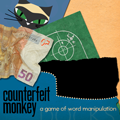Counterfeit Monkey — 187 of 292
Emily Short
Section 1 - Memory Terms
A memory is a kind of thing. A memory can be triggered, proto-triggered, or untriggered. A memory is usually untriggered. A memory is usually fixed in place.
A memory has a number called the uses.
A memory has a number called the max.
A memory has a number called the last trigger. The last trigger of a memory is usually 0.
Understand "remember" or "memories" or "memory" as listing memories. Listing memories is an action out of world.
Report listing memories:
say "Currently on your mind [is-are a list of triggered memories][one of]. [paragraph break][first custom style][bracket]REMEMBER any memory to review it.[close bracket][roman type][or].[stopping]";
To trigger (new memory - a memory):
let elapsed count be the turn count - last trigger of the new memory;
if the uses of the new memory is less than the max of the new memory and elapsed count is greater than 2:
now the new memory is proto-triggered;
change the last trigger of the new memory to the turn count;
Before reading a command when a memory is proto-triggered:
say "[one of]Something makes you think of[or]You have a fleeting thought of[or]You are reminded of[at random] [the list of proto-triggered memories].";
now every proto-triggered memory is triggered;
if we have not remembered:
say "[line break][first custom style][bracket]MEMORIES will list your currently active memories[close bracket][roman type]";
Understand "remember [any triggered memory]" as remembering. Understand "think about [any triggered memory]" as remembering. Remembering is an action applying to one visible thing.
First carry out remembering a memory:
increase the uses of the noun by 1.
Report remembering:
say "Then we're back in the present.[line break]".
Sanity-check remembering when the location is Roundabout and the player is in the car:
say "Hey! Now isn't the time for reveries! Watch the road." instead.
Remembering something is acting fast. Listing memories is acting fast.
